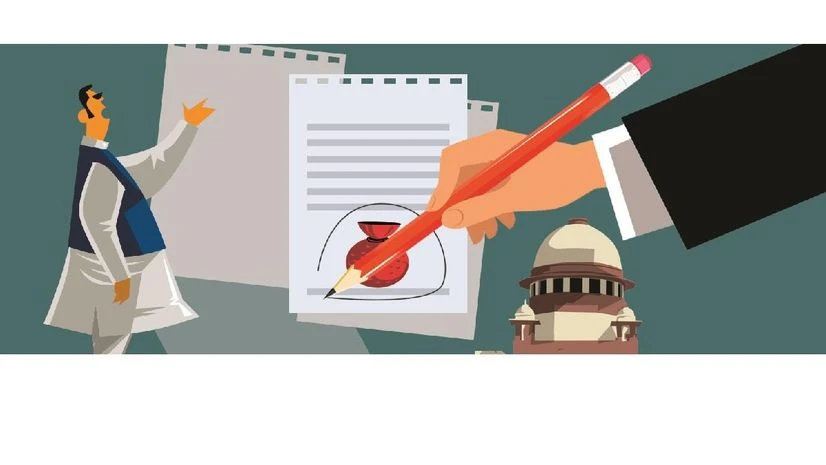By Andy Mukherjee
By lifting the veil of secrecy from a now-banned election funding mechanism, India’s Supreme Court has shown that the rot in the country’s opaque political donations may be as wide as it is deep.
The disclosure by the nation’s election commission — a day in advance of the judges’ Friday deadline — doesn’t provide all the answers, though it indeed throws up troubling questions about the exact nature of the relationship between capital and politics. And it does so just before nearly one billion voters in the world’s biggest democracy start choosing their next government.
The most generous political donor via the anonymous bearer instruments, known as electoral bonds, is not a globally known Indian billionaire, but Santiago Martin, a.k.a. “Lottery King Martin.” His Future Gaming and Hotel Services Private Ltd. has paid nearly 14 billion rupees ($165 million) since 2019. Another privately held group, Megha Engineering, is close — with donations of 12 billion rupees via two companies.
Among large conglomerates, troubled commodities czar Anil Agarwal’s Vedanta Ltd. has donated 4 billion rupees, the same as aluminum-to-telecom baron Kumar Mangalam Birla’s firms. A little-known supply-chain company in tycoon Mukesh Ambani’s stable has also contributed a similar amount. Sunil Mittal, whose Bharti Airtel Ltd. competes against Birla’s struggling Vodafone Idea Ltd., has given 2.5 billion rupees.
Also Read
The State Bank of India, the institution that operated the six-year-old election funding mechanism, knows very well which political parties got money from whom in accounts specially opened for the purpose, but it hasn’t divulged that information.
The bank’s demurral has dented its credibility. It has also damaged the cause of electoral transparency. Having declared this mode of anonymously routing corporate money to political parties as unconstitutional, the judges should have been stricter in forcing disclosure. The SBI had asked for time until June 30 to match purchases to beneficiaries. The court denied that request, and rightly so: If the Pandora’s Box is not opened before the polls that are likely to be held in April and May, then it may as well remain shut.
However, forced to release the information, the SBI chose to dump the raw data via the election commission’s website as two separate PDF files of givers and takers. Putting it all into a spreadsheet leads to nearly 40,000 entries. As analysts and journalists have only just begun crunching the information, there will be much speculation in the days ahead about which businessman may have paid money to win a juicy contract, and who might have bought a bond to avoid going to jail.
Many of the donors are individuals, though only some of them — like the steel magnate Lakshmi Mittal — are well known. Other names are more obscure. Their motivations for buying the bonds will have to be unearthed by reporters in their local communities.
Some transactions seem to defy logic. For instance, why should an electricity transmission utility in Uttar Pradesh, India’s most-populous and politically most crucial state, pay more than 2 billion rupees to politicians when its EBITDA for fiscal year 2022 was 6 billion rupees? The firm is part of Megha Group, already the second-largest donor. If its payment will even indirectly add to the cost of electricity, then consumers need an explanation from the power regulator.
The voters also need some answers from the country’s largest bank. The SBI knows the serial numbers of all the bonds sold and cashed. Unless it is made to divulge the exact money flow before voting begins next month, allegations of quid pro quo won’t go away.
Prime Minister Narendra Modi’s Bharatiya Janata Party, which introduced the funding mechanism, says its goal was to usher in transparency. While the BJP received 48 per cent of the $1.5 billon in bonds from 2019 to January 2024, just before the Supreme Court scrapped the program last month, it isn’t alone. Governments in non-BJP-ruled states are also in a position to dispense favors to the private sector — or hold them back. To keep voters in the dark about monetary exchange between capital and politics is unhealthy for democracy.

)
